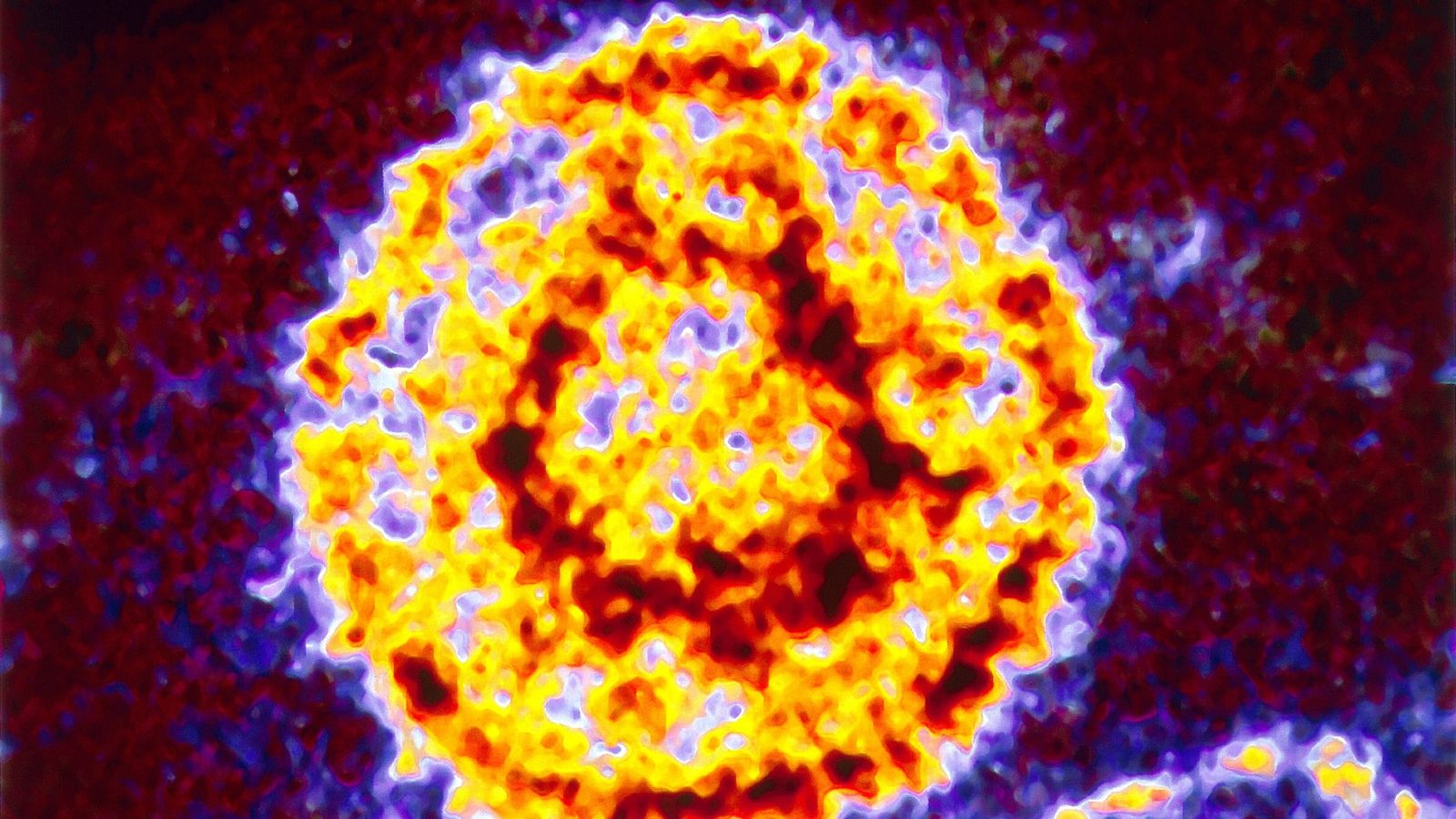Infection with Epstein-Barr virus (EBV) is a prerequisite for the development of multiple sclerosis (MS). The close association between EBV and MS has long been known. However, American scientists at Harvard Chan School were able to prove this again very clearly in a study with a very large number of participants.
Multiple sclerosis: a disease of the central nervous system
“The hypothesis that EPV causes MS has been explored by our team and others for many years, but this is the first study to provide conclusive evidence for a causal link,” said Alberto Azzero, professor of epidemiology and seniority at the Harvard Chan School. Author Research published in the journal Science.
Multiple sclerosis is a chronic inflammatory disease of the central nervous system. It attacks the myelin sheaths that line the nerve cells in the brain and spinal cord. The cause of the disease is not yet known, but Epstein-Barr virus (EBV), one of the herpes viruses, has long been one of the main suspects. It causes an infectious mononucleosis, also known as mononucleosis. More than 90 percent of all people become infected with EBV at some point and then keep it in their body for the rest of their lives. But only a few of the victims later developed MS.
With so many people infected with EPV, it is difficult to prove whether the virus is actually the cause of the disease. MS is also a relatively rare disease and the first symptoms do not appear until about ten years after EBV infection. Other factors play a role in the development of MS. Some of these include genes – but smoking, low vitamin D levels and obesity or day-night rhythm disturbed at a young age.
Study of ten million American soldiers
For their research, U.S. scientists examined the blood samples of tens of millions of American soldiers who are tested for HIV every two years. They diagnosed 801 people with multiple sclerosis and tested their blood samples for antibodies against EBV. In 35 of them, no antibodies against EBV were detected in the first blood samples at the start of service. However, 34 out of 35 people later became infected with EBV and developed antibodies before they developed MS. In a total of 801 MS cases, only one person had no EBV antibodies in their blood at the time of the outbreak.
The authors of the study were able to use blood samples to show that no biomarks for MS were initially detected in those who did not have EPV antibodies. However, after EBV infection, these can be detected in blood samples before MS symptoms appear.
EBV is a prerequisite but not necessarily the main cause of MS
The authors of the study concluded their research: “The lowest risk of MS in EBV-negative populations suggests that most of the MS cases are caused by EBV.” Wolfgang Hammersmith, chairman of the Genetic Vectors team at the Helmholtz Center in Munich, argues: “This study suggests that EBV infection may be a prerequisite for MS, but that EBV or EBV antigens are the driver for MS, respectively?”
Klemens Ruprecht, head of the Multiple Sclerosis Outpatient Clinic in Universitätsmedizin Berlin, Charité, has a similar view: “The mechanisms by which EBV contributes to the development of MS are currently unknown. Is involved. “
Vaccines and drugs are still a long way off
“Currently there is no way to effectively prevent or treat EBV infection, but fighting the virus with the EBV vaccine or EBV-specific antiviral drugs may eventually prevent or cure MS,” Ascherio summarizes the treatment possibilities of the study results.
Klemens Ruprecht shares this rating. However, he hopes the EBV vaccine will soon protect against MS. Although it’s possible to develop an effective vaccine against EBV, it will take decades to determine for sure if such a vaccine will actually protect against MS. ”
An EBV vaccine that can prevent MS must induce sterile immunity, i.e. completely prevent infection. However, according to Wolfgang Hammerschmidt, the development of such an EBV vaccine is currently not possible for a variety of reasons. On the other hand, not every infection with EBV needs to be prevented, but at least a vaccine that prevents gonorrhea outbreaks is realistic. This eliminates the additional risk in the development of existing MS.
MS treatment with drugs that work against EBV is not yet up to date. There are attempts to destroy EPV-infected cells with specialized antibodies and T-cells. However, some of these may not actually apply to living people. In addition, it is doubtful whether such treatment can actually reach all affected body cells and completely extinguish EBV.

“Proud explorer. Freelance social media expert. Problem solver. Gamer. Extreme travel aficionado.”


